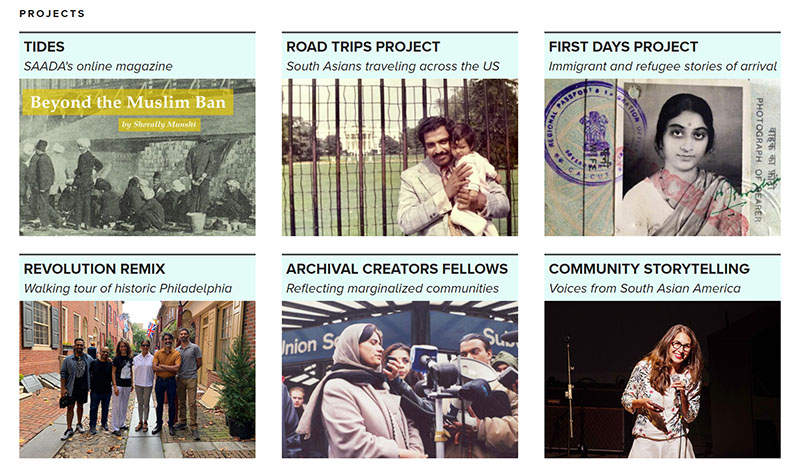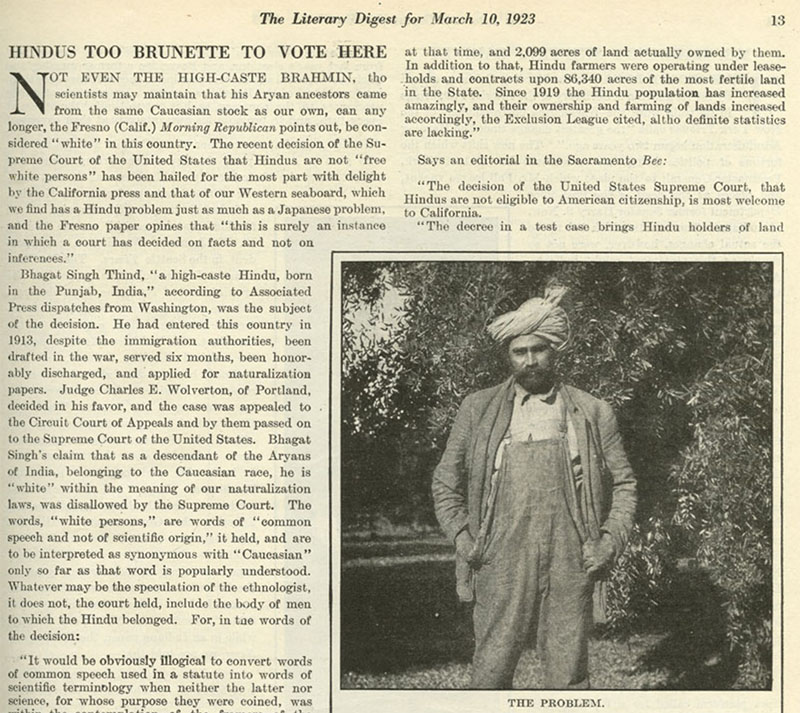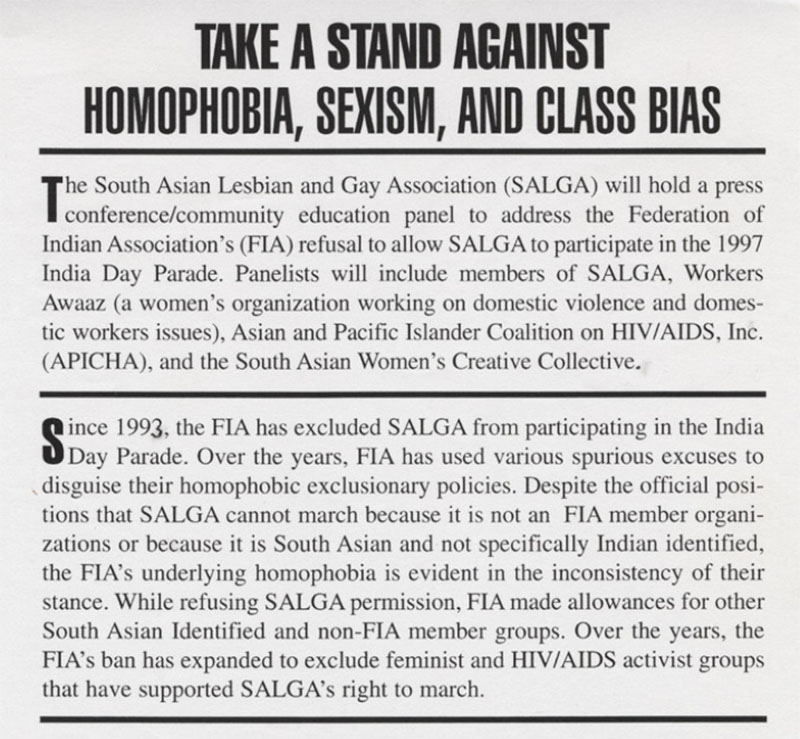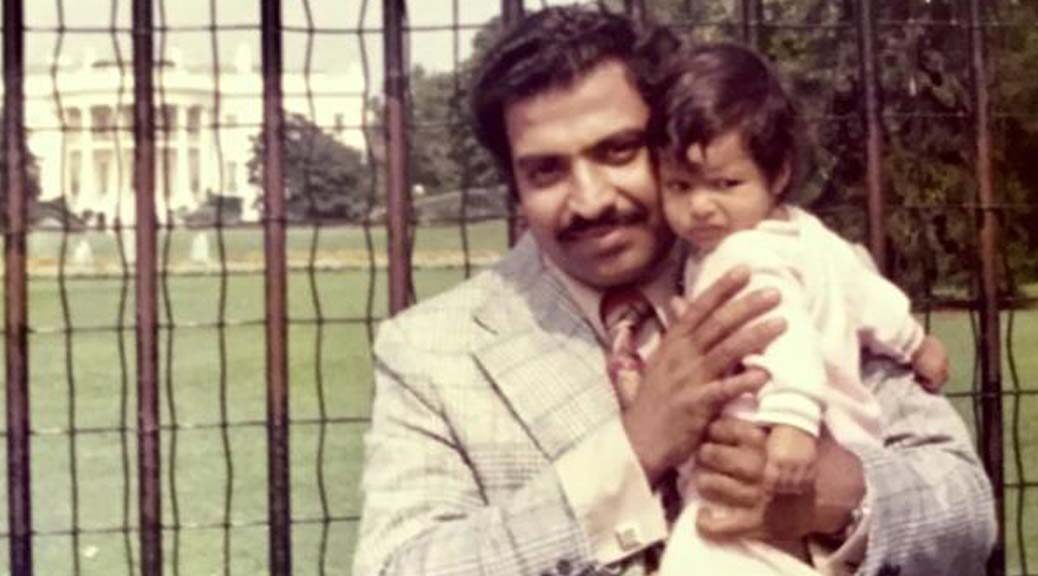Read, hot & digitized: Librarians and the digital scholarship they love — In this new series, librarians from UTL’s Arts, Humanities and Global Studies Engagement Team briefly present, explore and critique existing examples of digital scholarship. Our hope is that these monthly reviews will inspire critical reflection of and future creative contributions to the growing fields of digital scholarship.
May marks Asian American and Pacific Islander (AAPI) Month and reminds us to celebrate the contributions of AAPI communities in the U.S. and to confront the ongoing trials experienced by members of the AAPI population. AAPI Month also challenges us to learn more about the diversity of peoples and cultures enfolded under such a broad umbrella. This post suggests that we unpack the complexity such a ubiquitous but ultimately masking label as “Asian American” by looking closely at just one community, South Asian Americans, through the lens of a digital project, the South Asian American Digital Archive (SAADA).

Caption: South Asian American Digital Archive, “Projects,” https://www.saada.org/, accessed 9 May 2021.
The core of SAADA is community building through documentation and action. Documentation takes the form of an online repository of narratives, including the personal and private (oral histories, written correspondence, photographs) and the published (newspaper clippings, academic articles). That archival core forms the foundational structure around and through which SAADA organizes and facilitates action (the process of documentation, educational events, community building). Throughout, the intention is to represent the complexity of South Asian American experience in an effort to create a more inclusive society. As their vision states, “We envision American and world histories that fully acknowledge the importance of immigrants and ethnic communities in the past, strengthen such communities in the present, and inspire discussion about their role in the future.”[1]
Browsing the archive allows one to learn more about topics such as the histories of South Asian immigration or the intersectional engagement of the community, but also demands that one consider the continuity of those histories in the present.

Caption: “Hindus Too Brunette To Vote Here” SAADA, https://www.saada.org/item/20101210-148, accessed 9 May 2021

Caption: “Take A Stand Against Homophobia, Sexism, And Class Bias” SAADA, https://www.saada.org/item/20120725-866, accessed 9 May 2021
SAADA exemplifies the power of the “community archive.” Purposefully participatory rather than merely consumptive in practice, community archives encourage those described, presented and preserved in an archive to determine not only what is included and excluded but also how. As such, SAADA offers an insider-driven alternative to colonial and colonialist libraries and archives, an alternative realized through action. They are not alone in their efforts. Other powerful examples of anti-colonial community archival practice include platforms such as Mukurtu, an open source content management platform that empowers and operationalizes knowledge systems inherent to a community (as opposed to those from outside), and UT-affiliated initiatives such as the Human Rights Documentation Initiative which supports the Texas After Violence Project and the Genocide Archive of Rwanda.
Learn more!
Caswell, Michelle, “Seeing yourself in history: community archives and the fight against symbolic annihilation,” The Public Historian 36: 4 (November 2014), pp 26-37. https://doi.org/10.1525/tph.2014.36.4.26
Center for Asian American Studies, University of Texas, https://liberalarts.utexas.edu/aas/.
Desai, Manan. The United States of India: Anticolonial Literature and Transnational Refraction / Manan Desai. (Philadelphia: Temple University Press, 2020).
Mishra, Sangay K. Desis Divided: the Political Lives of South Asian Americans (Minneapolis: University of Minnesota Press, 2016).
Shams, Tahseen. Here, There, and Elsewhere: the Making of Immigrant Identities in a Globalized World (Stanford, California: Stanford University Press, 2020).
Sharma, Rashmi, and Roshni Rustomji-Kerns. Living in America: Poetry and Fiction by South Asian American Writers (New York, New York: Routledge, 2018).
[1] South Asian American Digital Archive, “Mission,” https://www.saada.org/mission, Accessed 9 May 2021.

